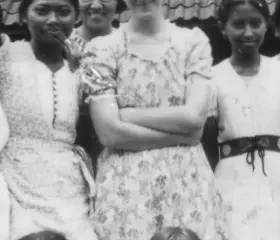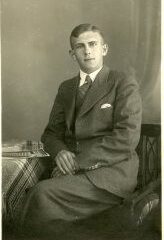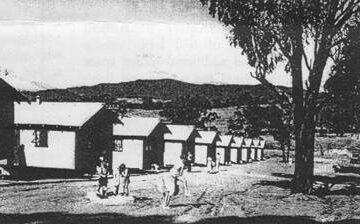This article is produced with the assistance AI. Corrections and additions are welcome.
Who Were the Boers?
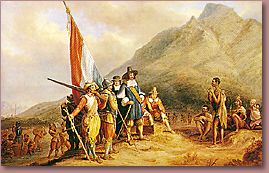
The Boers were descendants of Dutch, German, and French Huguenot settlers who arrived in southern Africa in the 17th and 18th centuries, primarily under the auspices of the Vereenigde Oostindische Compagnie (Dutch East India Company). These early European settlers established farms and communities in what became known as the Cape Colony. Over time, the Boers developed a distinct culture, language (Afrikaans), and identity, characterised by their fiercely independent and agrarian way of life.
In the early 19th century, as the British Empire expanded its influence in southern Africa, tensions grew between the British authorities and the Boers, who resented British control and policies. This led to the Great Trek in the 1830s, during which many Boer families migrated inland to establish their own independent republics, most notably the South African Republic (Transvaal) and the Orange Free State.
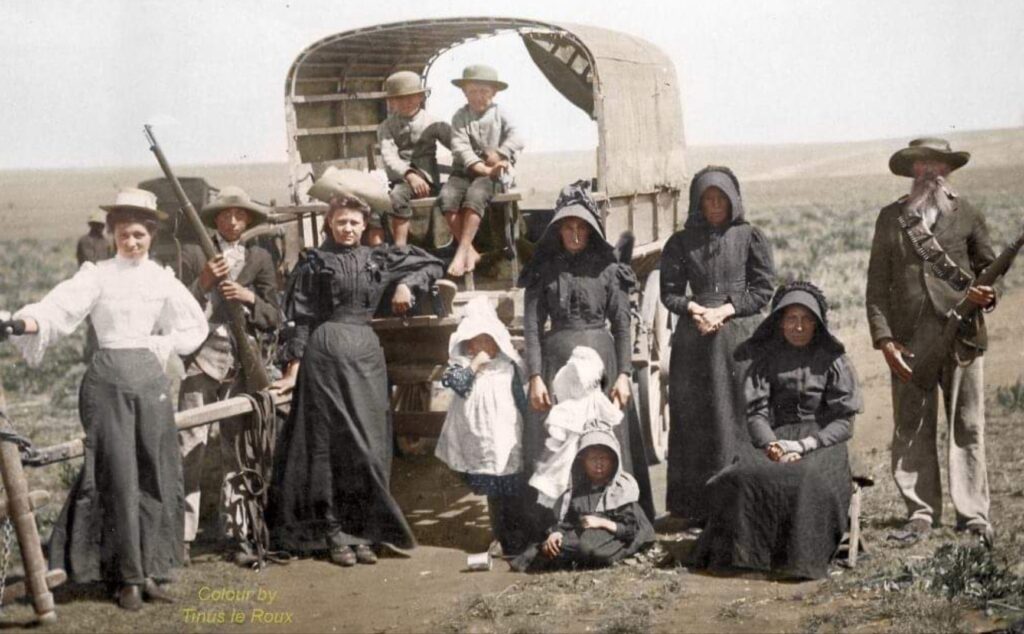
These Boer republics remained independent until the discovery of gold and diamonds in the late 19th century brought renewed British interest in their territories. The growing tension over British imperial ambitions and Boer desire for sovereignty culminated in the Second Anglo-Boer War (1899–1902), in which the Boers fought to maintain their independence but ultimately were defeated.
The Migration of Boers to Australia After the Second Anglo-Boer War
The Second Anglo-Boer War (1899–1902) left South Africa in devastation, particularly for the Boer population, which had faced scorched-earth policies, concentration camps, and the destruction of their homes and livelihoods. While many Boers remained in South Africa under British rule, a notable number sought new beginnings abroad. Among their destinations was Australia, where opportunities in agriculture, mining, and land settlement attracted these war-weary people. Although the migration of Boers to Australia was relatively small compared to countries like Argentina or the United States, their arrival left a lasting legacy, particularly in rural areas.
Reasons for Boer Migration to Australia
Several factors motivated Boer families and individuals to emigrate to Australia after the war:
- War and British Victory: The British victory in the Boer War led to the formal annexation of the Boer republics, Transvaal and the Orange Free State, into the British Empire. Many Boers, having fought against the British for their independence, were reluctant to live under British rule. The war’s devastation left them without homes or means of livelihood, prompting some to seek a new life abroad.
- Economic Opportunities in Australia: Australia was experiencing economic growth at the turn of the 20th century, particularly in agriculture and mining. Boer migrants, who had agricultural expertise, were attracted to these opportunities, especially in regions like Queensland and Western Australia, where land and resources were available. Australia, a British colony, was also eager to attract European settlers to develop its vast lands, and Boers were seen as a good fit.
- Post-War Exile and Refugees: Some Boers who had been exiled or had fled during the war chose to settle in Australia for political reasons or to avoid returning to a South Africa now under British control. Boer leaders and soldiers who had been prisoners of war also sought refuge in British dominions like Australia, where there were economic prospects and political stability.
Boer Communities in Australia
While Boer migration to Australia was not as large or well-documented as in other destinations, significant numbers of Boers settled in specific regions:
- Queensland: The largest concentration of Boer immigrants settled in Queensland, particularly in rural agricultural areas. Many Boers became successful farmers and laborers, integrating into the local agricultural communities. The open land and agricultural opportunities appealed to the Boers, many of whom had extensive farming experience from South Africa.
- Western Australia: Western Australia was another key destination for Boer migrants. The region’s mining boom, as well as the availability of farming land, attracted Boers looking for work. Boers brought their expertise in farming, helping to develop rural areas in this region.
Notable Boer Migrants to Australia
Although specific records of Boer migrants are limited, a few notable names and families are known to have settled in Australia:
- General Ben Viljoen: A prominent Boer general during the war, Viljoen was captured by the British and sent to a prisoner-of-war camp in India. After his release, Viljoen traveled extensively, including a period spent in Australia, before eventually emigrating to the United States.
- Hercules Malan: Malan was a Boer war veteran who emigrated to Australia after the conflict. Like many Boers, he sought a new life in Australia’s agricultural and economic opportunities.
- Kruger Family: Some members of the Kruger family, related to the famous Boer leader Paul Kruger, emigrated to Australia. While Paul Kruger himself lived in exile in the Netherlands after the war, some of his extended family chose Australia as their new home, joining the broader wave of Boer migration.
- Sarel Philip Theron: A Boer prisoner of war sent to camps in Bermuda, Sarel Philip Theron decided not to return to South Africa after the war. Instead, he settled in Western Australia, where he became a notable farmer in the Katanning region, contributing to the agricultural development of the area.
- Scholtz Family: The Scholtz family, another Boer family affected by the war, emigrated to Queensland after the conflict. They were among the many Boer families who found success in Queensland’s farming regions.
- Botha Family: A branch of the Botha family, another prominent Boer family, emigrated to Australia after the war. They brought their farming knowledge with them and settled in rural areas, contributing to the agricultural communities in Queensland and Western Australia.
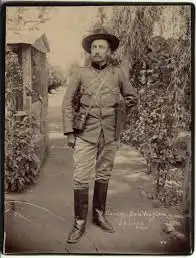
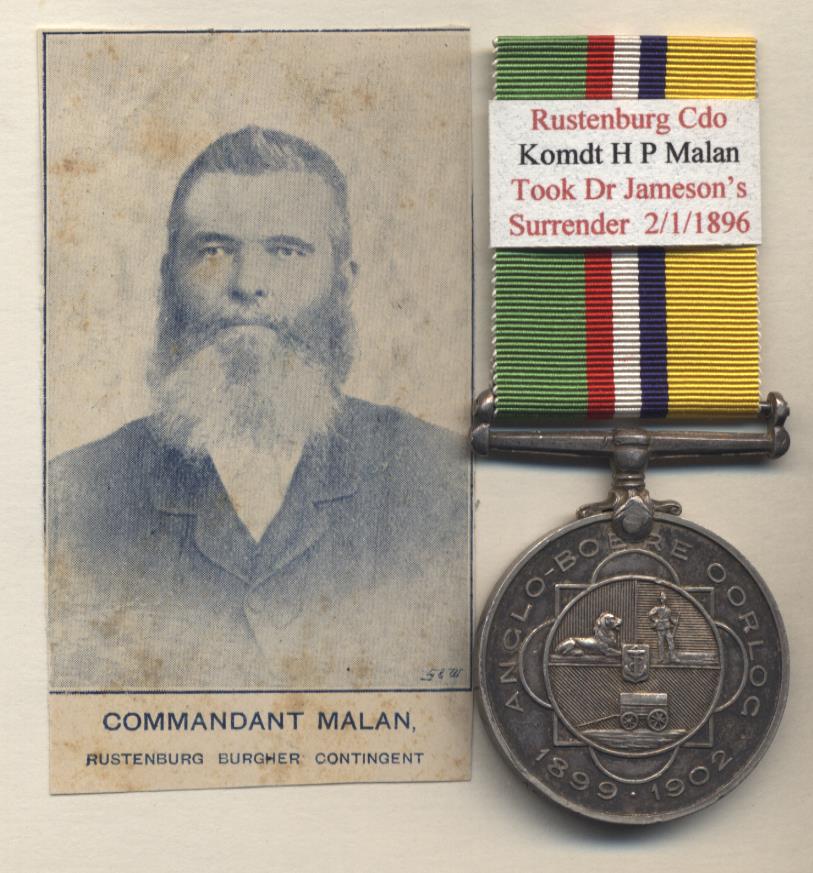
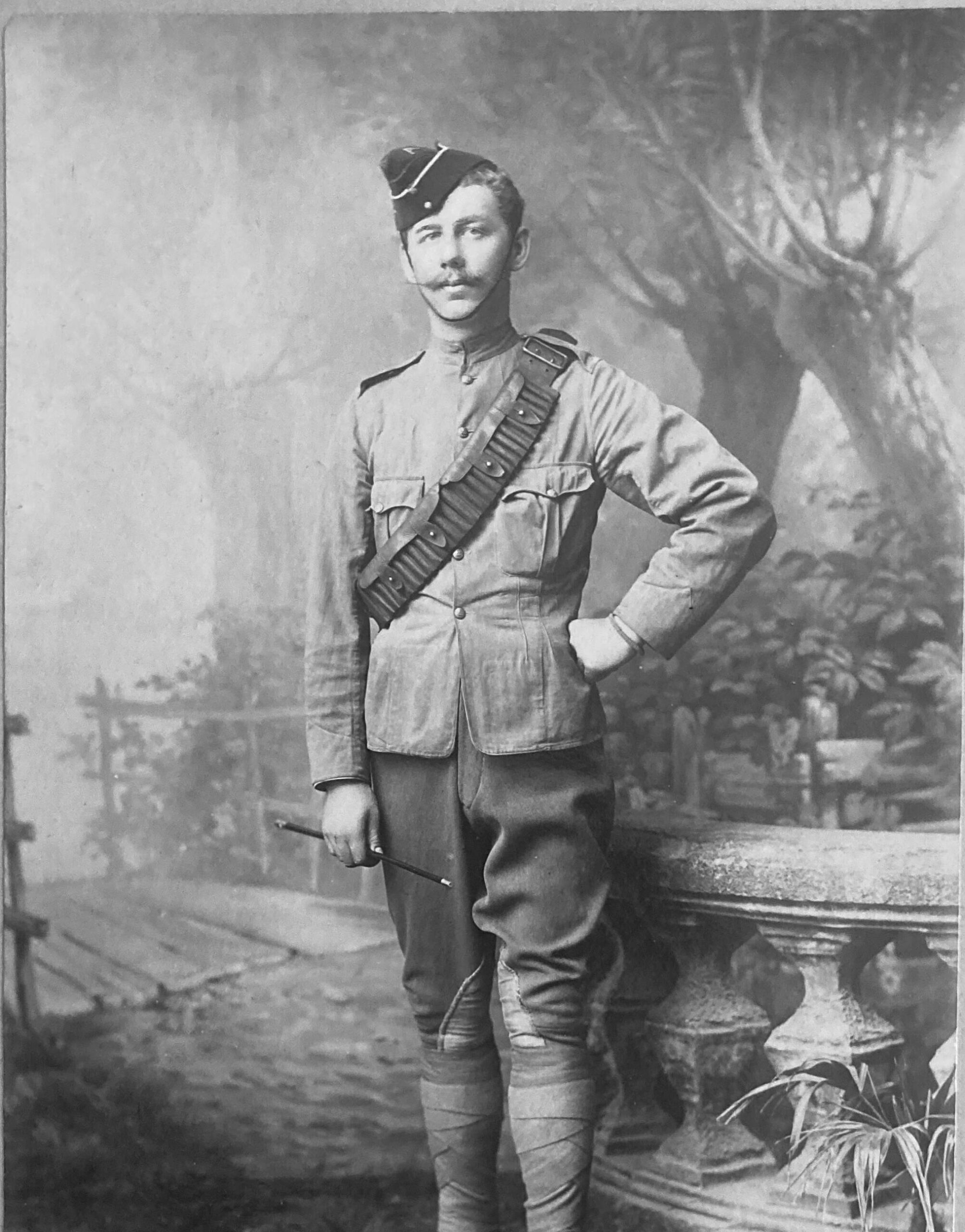
Legacy and Impact of Boer Migration
Though the migration of Boers to Australia was not as large as other destinations, those who arrived made significant contributions, particularly in agriculture. Boer settlers brought their knowledge of farming and animal husbandry, helping to develop rural areas and establishing themselves as successful farmers. Many of their descendants still live in these regions today, maintaining the legacy of the Boer contribution to Australian society.
In addition to agricultural contributions, Boer migrants also added to Australia’s growing diversity of European settlers during the early 20th century. They became part of the broader fabric of Australian rural life, blending their Afrikaner heritage with Australian customs and society. Boer War veterans, both from the Boer and British sides, also remained in Australia, integrating into Australian society after the war.
Conclusion
The migration of Boers to Australia, though relatively small, was an important part of the post-war diaspora that followed the Second Anglo-Boer War. Drawn by opportunities in agriculture and mining, Boer families and individuals made lasting contributions to the development of rural Australia. Today, the legacy of these settlers can still be found in the regions where they established themselves, reminding us of the enduring connections between South Africa and Australia in the aftermath of the Boer War.
Dutch Involvement in the Boer War
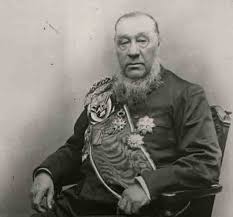
Although the Netherlands remained officially neutral during the Second Anglo-Boer War (1899–1902), it played an important role due to its historical and cultural ties to the Boers, who were descendants of Dutch settlers. Public opinion in the Netherlands was overwhelmingly sympathetic to the Boer cause, viewing the conflict as British imperialism against fellow Dutch-speaking people.
The Dutch provided significant diplomatic and humanitarian support to the Boers, raising funds, sending medical supplies, and organising volunteer missions to assist the wounded. Several Dutch doctors, nurses, and volunteers traveled to South Africa to aid Boer civilians and soldiers. Former Dutch Prime Minister Abraham Kuyper was among the prominent voices advocating for the Boers internationally.
Despite these efforts, the Dutch government did not intervene militarily, and the Netherlands could not influence the war’s outcome. After the British victory, some Boer leaders and families, including exiled President Paul Kruger, found refuge in the Netherlands, further cementing the Dutch-Boer connection.
Australia’s Involvement in the Boer War
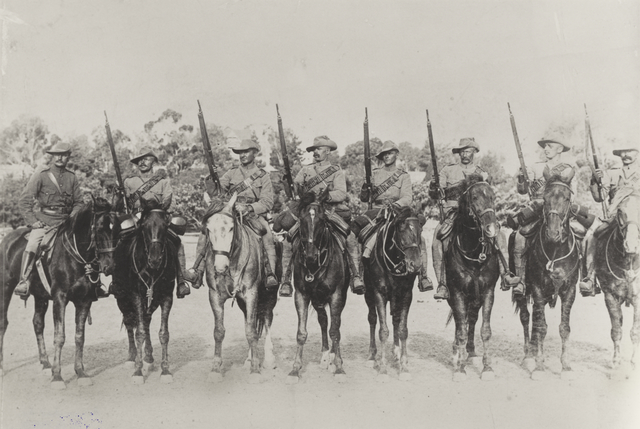
Australia played a significant role in the Second Anglo-Boer War (1899–1902), contributing around 16,000 troops to support the British Empire. Australian soldiers, particularly mounted infantry and Bushmen skilled in riding and survival, were effective in the South African terrain and participated in key battles such as the Relief of Kimberley and the Battle of Elands River. Over 500 Australians died, with many succumbing to disease.
The war occurred during Australia’s Federation in 1901, and it helped shape the country’s early national identity. The experience gained in the war influenced Australia’s approach to future conflicts, especially World War I. Notable figures like General Sir Harry Chauvel and the controversial Breaker Morant emerged from the conflict, and the Boer War remains an important part of Australia’s military history.
Sources:
“The Anglo-Boer War” by Thomas Pakenham (1979)
- A comprehensive history of the Boer War that covers its causes, the war itself, and the aftermath, including the impact on Boer society and subsequent migration patterns.
“The Boer War: Historiography and Annotated Bibliography” by Fred R. van Hartesveldt (2000)
- A detailed analysis of the historiography of the Boer War, including Dutch involvement and support for the Boer cause.
“The Boers in the Transvaal and Orange Free State” by Hermann Giliomee in The Cambridge History of South Africa, Volume 2 (2011)
- This volume provides background on the Boer republics, the causes of the Boer War, and its wider impact, including the role of international supporters like the Netherlands.
“The Boer War and its International Dimension” by Fransjohan Pretorius in The South African Historical Journal
- Examines the role of international players, including the Dutch, in the Boer War and the global response to British imperialism.
“Kruger’s Exile: The Netherlands and the Boer War” by Robert Ross in Dutch Crossing: A Journal of Low Countries Studies
- Focuses on the Dutch reaction to the Boer War and the exile of Boer leaders like Paul Kruger to the Netherlands.
Dutch Archives and Museum Collections
- The Dutch National Archives (Nationaal Archief) and various museums in the Netherlands, such as the Rijksmuseum, contain letters, documents, and artifacts related to Dutch humanitarian efforts during the Boer War.
“Boers on the Move: The Second Anglo-Boer War and the Impact on Migration” by Rebecca Swart
- This article provides insight into post-war Boer migration, including to Australia, and explores the push factors leading to this movement.
